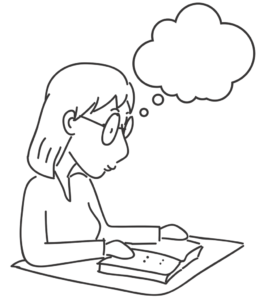Stress can make blood pressure go up for a while, and it has been thought to contribute to high blood pressure. But the long-term effects of stress are as yet unclear. Stress management techniques do not seem to prevent high blood pressure. However, such techniques may have other benefits, such as making you feel better or helping you to control over-eating thus helping in decreasing your blood pressure.
Remember Your blood pressure increases remarkably when you are under physical or emotional stress. If you constantly feel “stressed out,” your body may maintain an abnormally high level of responsiveness, creating an artificially induced state of high blood pressure.
Exercise can also cause stress, but Unlike exercise, which provides your body with well-controlled physical stress for a limited amount of time, chronic stress does not benefit your circulatory system. Rather, it increases your risk of illness. However, stress is very much a part of modern life, and it can be hard to control the amount of stress in your life without changing your daily habits significantly.
what are the ways to control your stress? Many persons do follow these habits to relieve from stress容ating, drinking alcohol, and smoking幼ontribute to the development of high blood pressure. You may wish to use exercise to manage your stress. Failing that, you may need to seek counseling to help you change how you think about certain things that cause you to be stressed, or to learn relaxation techniques. Relaxation techniques, including progressive muscle relaxation and transcendental meditation may help reduce mild high blood pressure.
How your heart is affected by stress? Stress has noticeable effects on the cardiovascular system. Who hasn’t felt their heart beat faster because of stress or anxiety? Chronic stress can result in high blood pressure, atherosclerosis, strokes, heart attacks, and other cardiovascular system disorders.
Keep in mind that Stress is a leading cause of high blood pressure. Even a small stress response causes blood vessels to constrict. Research is unlocking a complex relationship between stress, high blood pressure and the cardiovascular system. Some studies has proved this fact that stress is deeply related with high blood pressure.
Recent studies have brought to light how stress and high blood pressure influence the chance of a stroke and transient ischemic attacks. A study in the June 2003 edition of Stroke draws a connection between the severity of stress-induced blood pressure changes and the risk of strokes. Danish study supports this finding: the study discovered that middle-aged men who reported high levels of stress were twice as likely to suffer a fatal stroke compared to men who reported low stress levels. As little as one incident of stress a week doubled the chance of a stroke.
Atherosclerosis occurs when fat, cholesterol, and plaque deposits build up and clog the cardiovascular system’s blood vessels. Arteries become thick with this process. If atherosclerosis affects blood vessels leading to the heart, the disease is referred to as coronary artery disease. High blood pressure , cholesterol, smoking and diabetes are important risk factors for High blood pressure. Stress may also be a contributing factor. An Ohio State University study discovered that stress slows the body’s metabolism of triglycerides, a type of fat linked to cardiovascular system disorders, including heart attacks. By slowing the metabolism of triglycerides, stress allows the fat to remain in the blood longer, a factor that may speed up atherosclerosis development.
Relaxation techniques can help minimize the effect stress has on the cardiovascular system. Research has noted that breathing exercises and meditation help control high blood pressure, and may even have a preventative effect. Development of atherosclerosis can also be delayed by relaxation techniques. Regular meditation, breathing exercises and other techniques can help to lower the level of oxidative chemicals in the blood, which in turn lowers the risk of atherosclerosis and thus maintaining your blood pressure with in normal limits.






